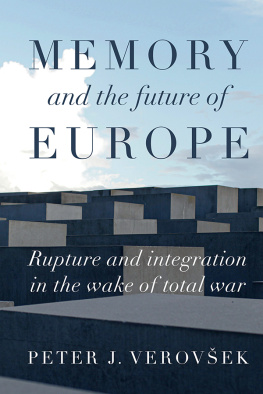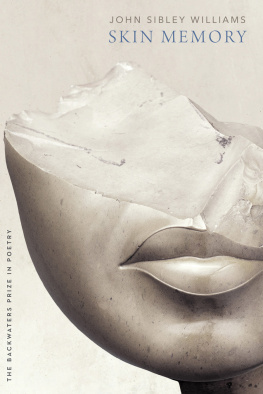Cosmopolitan Memory in Europes Backwaters
Cosmopolitan Memory in Europes Backwaters reconsiders the definitional relationships of national character and national heritage in the context of Western industrial modernity. Taking as a case study the Greek islands of Skiathos and Skopelos which served as cinematic locations for the blockbuster Mamma Mia! (2008), the book explores how national identity once shaped by political, cultural and religious practices can now be reduced to little more than an ideal, created and sold globally by Western industries such as tourism and film.
Tzanelli examines how the film encouraged the development of regional competitions that further enhanced the emotive potential of a Greek nationalist discourse that projects the blame for regional favouritism onto Western agents and the nation-state itself. It also takes into consideration the historical background of this controversy, which finds roots in the religious heritage of the south-eastern Mediterranean region in particular the notions of Byzantine Christianity, which the Greeks used to set against the Islamic traditions of their Ottoman colonizers to affirm their European civility.
Rodanthi Tzanelli is Lecturer in Sociology and Deputy Director, Centre for Ethnicity and Racism Studies, at the University of Leeds. She has published widely on national identity, the anthropology of cosmopolitanism and the politics of cultural industries. She is the author of The Cinematic Tourist: explorations in globalization, culture and resistance (2007), Nation-building and Identity in Europe: the dialogics of reciprocity (2008) and The Greece of Britain and the Britain of Greece (2009).
Cosmopolitan Memory in Europes Backwaters
Rethinking civility
Rodanthi Tzanelli
First published 2011
by Routledge
2 Park Square, Milton Park, Abingdon, Oxon, OX14 4RN
Simultaneously published in the USA and Canada
by Routledge
711 Third Avenue, New York, NY 10017
Routledge is an imprint of the Taylor & Francis Group, an informa business
2011 Rodanthi Tzanelli
The right of Rodanthi Tzanelli to be identified as author of this work has been asserted by her in accordance with the Copyright, Designs and Patent Act 1988.
All rights reserved. No part of this book may be reprinted or reproduced or utilised in any form or by any electronic, mechanical, or other means, now known or hereafter invented, including photocopying and recording, or in any information storage or retrieval system, without permission in writing from the publishers.
Trademark notice: Product or corporate names may be trademarks or registered trademarks, and are used only for identification and explanation without intent to infringe.
British Library Cataloguing in Publication Data
A catalogue record for this book is available from the British Library
Library of Congress Cataloging in Publication Data
Tzanelli, Rodanthi, 1974
Cosmopolitan memory in Europes backwaters : rethinking civility / by Rodanthi Tzanelli.
p. cm.
Includes bibliographical references.
1. National characteristics, Greek. 2. Culture and tourismGreece.
3. TourismSocial aspectsGreece. 4. Skiathos Island (Greece)
5. Skopelos Island (Greece) 6. Mamma Mia (Motion picture : 2008)
7. Motion picturesSocial aspects. 8. Culture in motion pictures. I. Title.
DF741.T94 2011
949.5dc22 2010050593
ISBN 13: 978-0-415-62065-9 hbk
ISBN 13: 978-0-203-81921-0 ebk
This book is for Mother and Majid, its twin poles
A solitary swallow
And a costly spring,
It takes hard work to place the sun in orbit,
It takes a thousand dead sweating at the wheels,
It also takes the living shedding their blood.
God, my Master Builder, You built me into mountains.
God, my Master Builder, You enclosed me in the sea!
Magicians carried off the body of May
They buried it in an oceanic tomb,
They sealed it up in a deep well,
Its smell fills the darkness and all the Abyss.
God, my Master Builder, You too among the Easter lilacs,
God, my Master Builder, You felt the scent of Resurrection!
Odysseas Elytis, xion Esti [It Is Worthy], 1959.
Contents
Illustrations
Film Stills
Photographs
1 Ethnographic Fiction and Autobiographical Truth
I wrote this note in the only room of my paternal house with no Internet reception. In this room three generations of women that travelled across Europe and Eurasia grew up. I am the last permanent migrant of my family. A voice tells me that it is haunted by my adopted grandmothers spirit, as nine years ago she succumbed to cancer in there. I partly owe her the inspiration for this books focus on civility, something she claimed exclusively for her community but failed to implement at home, especially after my grandfathers death. Greeces giagides (grannies) turn into intimidating monuments of mourning when they become widows, communicating their loss with black body garments commonly associated with Muslim femininity, and head mantels (mamokia), tokens of militant Islamic masculinity. My grandmother, who experienced a destruction of her social status and reproductive health in the whirlwind of migration from Turkey, compensated for her losses by rigidly controlling her intimate family world. In societies still defined by patriarchal norms, social regulation at home continues to sustain a flexible gender hierarchy that bestows older women with immense power at the expense of younger generations who want to break free from extended family obligations. The same need for absolute control defines Greek political marginality, ensuring the exclusion of any form of ethno-cultural difference that might forge alternative futures for the national community. As a descendant of my grandmothers canonical generation, I had the luxury to develop a critical distance from her intimate viewpoint (Ben-Zeev and Lomsky-Feder 2009). As member of a less glamorous generation, I had the misfortune to preserve these memories. As a scholar, I can now share them with others so that I can let them go.
The book takes a closer look at emotional stillness but also the ethical dilemmas of forgetful renewal. By analogy to my grandmother, Greece defines in International Relations the poetics of a repressed womanhood that curses its bad economic luck and resents other world players for their better stance. The masculine logic of honour has always been embraced by marginal socio-cultural identities as a symbolic remedy for their political ailments. In fact, phyl (race) and phlo (gender) are etymologically related in Greek, issuing a reminder of the countrys cultural particularity. The country holds fast to its European image while adhering to the Islamic code of branderi (= kinship) and Ouam (tribe, race) (Shaw 2000: 111) that keeps women in the domestic sphere and elevates family networks to community pillars. On the global map, when industrialization eventually transformed the castes into classes, Ouams regeneration in diasporic networks both supported and obstructed the emergence of the new (Asian) professionals. As a result, even this new service class retains the reproductive creativity that post-industrial sociology cannot conceive of outside the archaic formula of family life. Reduced once more to a global beggar, Greece has to shed its mourning garments and adopt the same professional ethos to navigate through the global crisis, setting aside tactics of cheating that IMF guardians will not tolerate. Though the poetics of Greek militant womanhood are overdetermined by Greeces subjection to Western demands, viewing the history of Greek phylogenesis as a contemporaneous totality is both ontologically incorrect and culturally corrosive: systemic critiques that are not coupled by collaboration and respect for others brew further intra-state dissonance, consolidating hierarchical divides controlled by those who do not look back when you continuously spit in their face.






